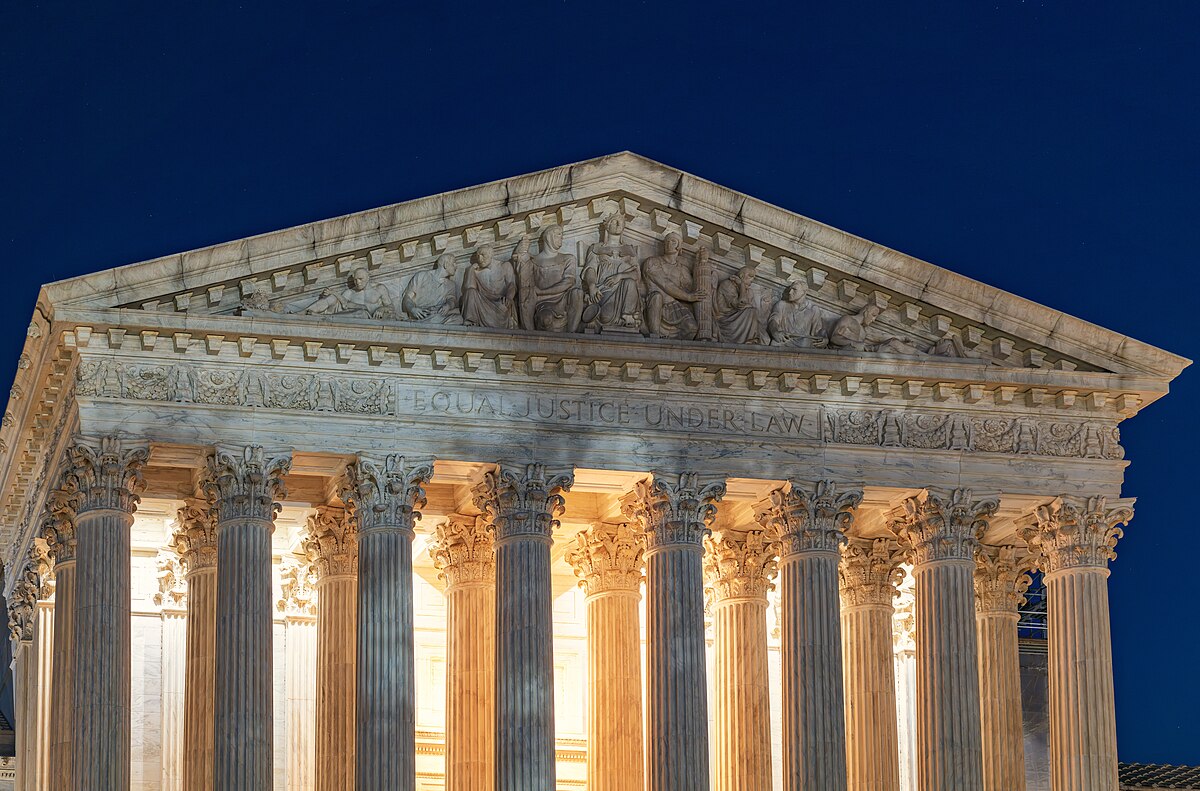
Supreme Court Justices Samuel Alito and Clarence Thomas were left stunned on Tuesday after their colleagues refused to take up a case involving a Massachusetts middle schooler who was reprimanded in school for wearing a shirt acknowledging biological reality.
As part of its newly released order list, the nation’s highest court declined to hear arguments in L.M. v. Town of Middleborough. The case involves Middleborough, Massachusetts, youth Liam Morrison, who in March 2023 wore a T-shirt that reads, “There Are Only Two Genders” to Nichols Middle School.
As The Federalist previously reported, Morrison — who was in seventh grade at the time — “was pulled from class by acting Principal Heather Tucker, who ordered Morrison to remove the shirt. After Morrison declined to do so, Tucker allegedly said he would not be permitted to return to class until he removed the shirt, prompting the seventh grader to leave school for the day.” This prompted Morrison to instead wear a shirt that reads, “There Are Censored Genders,” which school administrators also prohibited him from wearing.
Morrison’s father and stepmother filed a lawsuit on Liam’s behalf, in which they argued, in part, that the school’s actions violated Liam’s First Amendment right to free speech. A federal district court judge and the 1st Circuit Court of Appeals denied plaintiffs relief in the case, leading the latter to ask SCOTUS to take up the matter.
While Supreme Court rules require at least four justices to agree to hear a case before it can be considered by the full court, Alito and Thomas are the only named justices on Tuesday’s order list as those who would have granted Morrison’s petition.
The high court’s refusal to defend Morrison’s First Amendment rights sparked a scathing dissent from Alito, in which Thomas joined.
At the outset, the George W. Bush appointee highlighted Nichols Middle School’s apparent participation in “viewpoint discrimination,” in which school administrators appear to treat students’ views differently based on whether they find such beliefs to be favorable. He specifically noted, “Inside and outside the classroom, NMS promotes the view that gender is a fluid construct and that a person’s self-defined identity — not biological sex — determines whether that person is male, female, or something else” and “also encourages students to embrace and express this viewpoint, including during the school’s ‘PRIDE Spirit Week.’”
After detailing the remaining facts of the case, Alito went on to underscore the need for SCOTUS to “reaffirm the bedrock principle that a school may not engage in viewpoint discrimination when it regulates student speech.”
He further chastised the 1st Circuit for “cherry-picking which First Amendment principles it thought worthy of allowing through the schoolhouse gates.” (Thomas echoed a similar point in his short dissent, noting how the 1st Circuit “distorted this Court’s First Amendment case law in significant ways that warrant this Court’s review.”)
“By limiting the application of our viewpoint-discrimination cases, the decision below robs a great many students of that core First Amendment protection,” Alito wrote.
In justifying his reasoning for granting relief in the case, Alito also noted the importance of the Supreme Court “determin[ing]” whether the 1st Circuit “properly understood the rule adopted” in a prior SCOTUS case “regarding the suppression of student speech on the ground that it presents a risk of material disruption.”
“So long as the First Circuit’s opinion is on the books, thousands of students will attend school without the full panoply of First Amendment rights. That alone is worth this Court’s attention,” Alito wrote. “The problem, however, runs deeper: as this case makes clear, some lower courts are confused on how to manage the tension between students’ rights and schools’ obligations. Our Nation’s students, teachers, and administrators deserve clarity on this critically important question. Because the Court has instead decided to let the confusion linger, I respectfully dissent.”
The high court’s refusal to consider the Morrison case isn’t the first time a majority of justices have displayed cowardice on upholding Americans’ First Amendment rights.
A notable (and recent) example is the Masterpiece Cakeshop incident, in which Colorado cake artist Jack Phillips was sued for declining to create a wedding cake for a same-sex couple due to his Christian beliefs. As The Federalist’s Joy Pullmann previously noted, while the Supreme Court “ruled in Phillips’ favor” in 2018, it offered “such a narrow ruling as to allow a venomous transgender activist to immediately haul him back into court after speciously demanding that Phillips bake a transgender celebration cake.”
“The Supreme Court allowed this unconstitutional and anti-freedom regime to proliferate while pretending to check it with weak and ineffectual action,” Pullmann wrote.
Shawn Fleetwood is a staff writer for The Federalist and a graduate of the University of Mary Washington. He previously served as a state content writer for Convention of States Action and his work has been featured in numerous outlets, including RealClearPolitics, RealClearHealth, and Conservative Review. Follow him on Twitter @ShawnFleetwood

